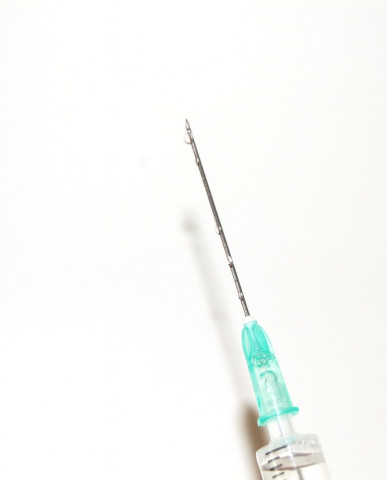Vision drug was ‘contaminated’ during transportation
Interim health minister says govt has acquired data of cold chain

Caretaker Punjab Specialised Healthcare and Medical Education Minister Dr Javed Akram on Monday maintained that Avastin injection – allegedly responsible for causing vision loss in diabetic patients across the province – became tainted during transportation.
Last month, several diabetics with reports of conjunctivitis, were reported in Punjab. The patients reported loss of eyesight after they were administered Avastin.
The issue first surfaced when several cases of the drug’s effects were reported in Kasur district.
The government banned the product and launched an inquiry to identify those who were responsible for endangering public health. The tainted batch of the medicine was immediately recalled from the market.
A case was registered against the culprits on the complaint of the Drug Regulatory Authority of Pakistan.
Addressing a news conference in Lahore, Dr Akram recalled that 66 people were affected by the use of the drug.
Read Three hospital staff detained for supplying Avastin
He said after the scandal surfaced, the government had extended the scope of inquiry, adding that the injection manufactured by the multinational company was infection-free.
He said Avastin was a cancer treatment drug and was not used according to the guidelines.
Dr Akram stated that the government had acquired the data of the cold chain and would release the injection batches.
He said heavy downpour and public transportation was the reason behind the contamination.
“We think this batch was shifted when there was heavy rainfall in Lahore and the samples given that day were not properly packed or checked,” he said.
The caretaker minister maintained that the drug was transported in a Daewoo bus, which was not permitted under the standard operating procedures.
Deliberating on the issue, he noted that after a forensic analysis of the vehicle, it was revealed that the space between the lower compartment of the bus and the road was less which led to rainwater entering the part of the bus where the cargo was stored.
“Rain and sewage entered the compartment and contaminated the drugs. This is how the infection was caused,” he said.
Dr Akram said officials had also secured previous records that confirmed drugs were being transported in public vehicles without any temperature control.



















COMMENTS
Comments are moderated and generally will be posted if they are on-topic and not abusive.
For more information, please see our Comments FAQ